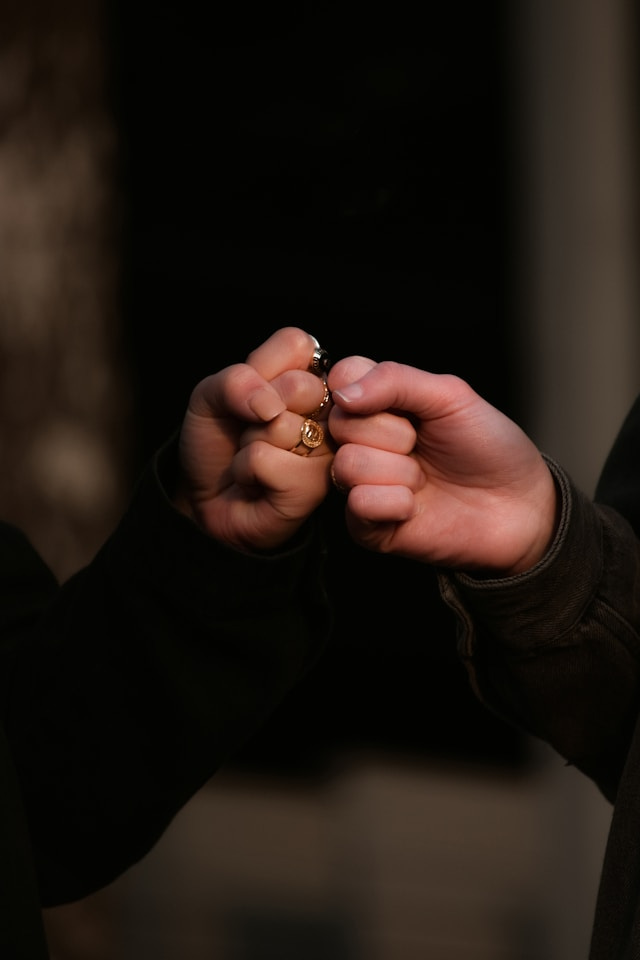
In his book "How to Know a Person," David Brooks eloquently underscores the importance of social skills in conjunction with being open-hearted to cultivate meaningful human connections. While having a compassionate and kind disposition is fundamental, Brooks argues that it's not sufficient for building lasting relationships or a cohesive community. Instead, the mastery of certain social behaviors is crucial.
Disagreeing Without Poisoning the Relationship
Disagreements are inevitable in any relationship, but the manner in which they are handled can either strengthen or erode the bond. I recall a heated debate with a close friend over a political issue. We both had strong opinions, but instead of letting the disagreement fester, we made it a point to listen actively and validate each other's perspectives. By focusing on the issue rather than attacking each other personally, we maintained our friendship and even gained a deeper understanding of each other's values.
Revealing Vulnerability at the Appropriate Pace
Vulnerability fosters intimacy, but it must be revealed judiciously. Sharing too much too soon can overwhelm the other person, while sharing too little can create emotional distance. I once opened up to a colleague about a personal struggle I was facing. By choosing the right moment and the right amount of detail, I received not only empathy but also valuable advice, enhancing our professional and personal rapport.
Being a Good Listener
Listening is an art that involves more than just hearing words; it requires understanding and empathizing with the speaker. My grandmother, a retired teacher, exemplified this. She would listen to my childhood tales with genuine interest, making me feel valued and understood. Her attentive listening not only built my confidence but also taught me the importance of making others feel heard.
Knowing How to End a Conversation Gracefully
Ending a conversation gracefully is a skill that ensures the interaction remains positive. A friend of mine excels at this by summarizing the discussion and expressing appreciation for the exchange. This leaves both parties feeling respected and eager to continue the conversation in the future.
Knowing How to Ask for and Offer Forgiveness
Forgiveness is essential for healing and maintaining relationships. I remember an instance where I unintentionally hurt a friend with a careless comment. Acknowledging my mistake and sincerely asking for forgiveness helped repair the rift, and when she later made a similar error, I was able to offer forgiveness easily, knowing its power to restore trust.
Knowing How to Sit with Someone Who Is Suffering
Being present with someone in their pain without trying to fix it is a profound act of empathy. When a close friend lost a family member, I realized that my words were inadequate. Instead, I offered my presence and a listening ear, which provided her with the comfort of knowing she wasn't alone in her grief.
Seeing Things from Another’s Point of View
Perspective-taking enriches our understanding and compassion for others. During a community project, our team often faced conflicting ideas. By making an effort to see the proposals from each member's viewpoint, we managed to blend our ideas into a cohesive and successful plan, fostering a sense of unity and shared purpose.
The Pitfalls of Social Media
Brooks also highlights the detrimental impact of social media on developing these essential social skills. On platforms like Facebook and Twitter, we might mistake digital interactions for genuine relationships. However, these interactions often lack the depth and authenticity required to build trust and intimacy. Social media can provide a false sense of connection, where judgment prevails over understanding and stimulation replaces genuine intimacy.
In my own experience, I have seen how social media arguments can escalate quickly due to the lack of face-to-face interaction. The anonymity and distance embolden people to say things they might never express in person. This has taught me the value of offline conversations, where tone, body language, and immediate feedback help manage disagreements more constructively.
Conclusion
David Brooks' insights remind us that being open-hearted is just the beginning of building meaningful human connections. The real work lies in mastering the social skills that foster trust, empathy, and understanding. By practicing these skills, we can create deeper, more fulfilling relationships and communities, steering clear of the superficiality often promoted by social media.
References
1. The Essential Skills for Being Human
- This New York Times article discusses the importance of social skills in building meaningful connections, echoing Brooks' sentiments.
2. Doug Sundheim - The Essential Skills for Being Human
- Doug Sundheim's LinkedIn post elaborates on the necessity of social skills for creating strong human bonds, similar to Brooks' ideas.
- Soraya Chemaly discusses the essential social skills highlighted by Brooks, emphasizing their importance in professional and personal relationships.



